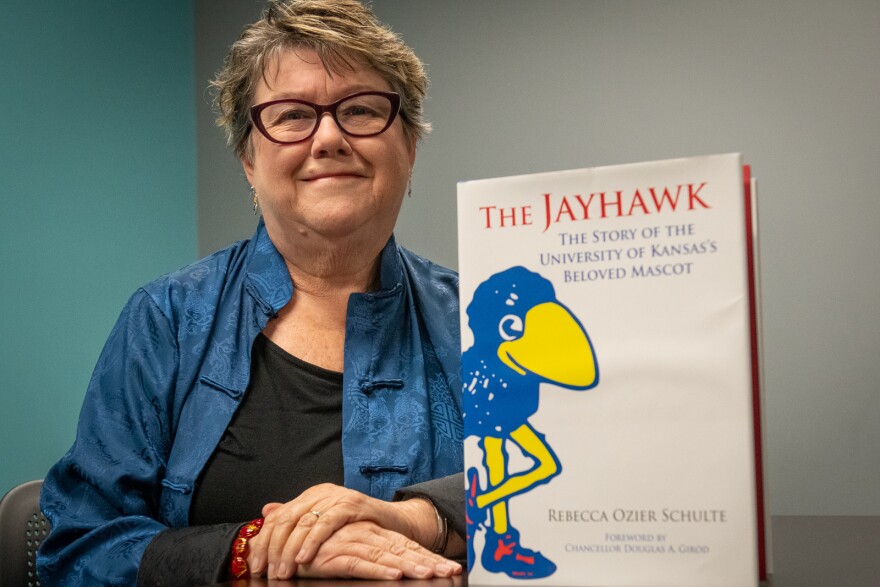In Rebecca Ozier Shulte’s new book "The Jayhawk," the author takes readers through the evolution of the iconic University of Kansas mascot.
The term "jayhawk" dates to pre-Civil War era Kansas and was adopted by the KU as the official mascot in the early 20th century. Its design has morphed over the years to the bird we know today.
"[The Jayhawk] represents the University as a whole," Shulte said. "A good mascot is one that can change itself to adapt to different circumstances. And that's one thing about the Jayhawk that I always really appreciated."
The book includes over 300 photographs from the University of Kansas archives, several of which have never been seen by the public.
- Rebecca Ozier Shulte, author of "The Jayhawk"







